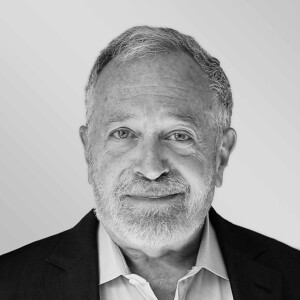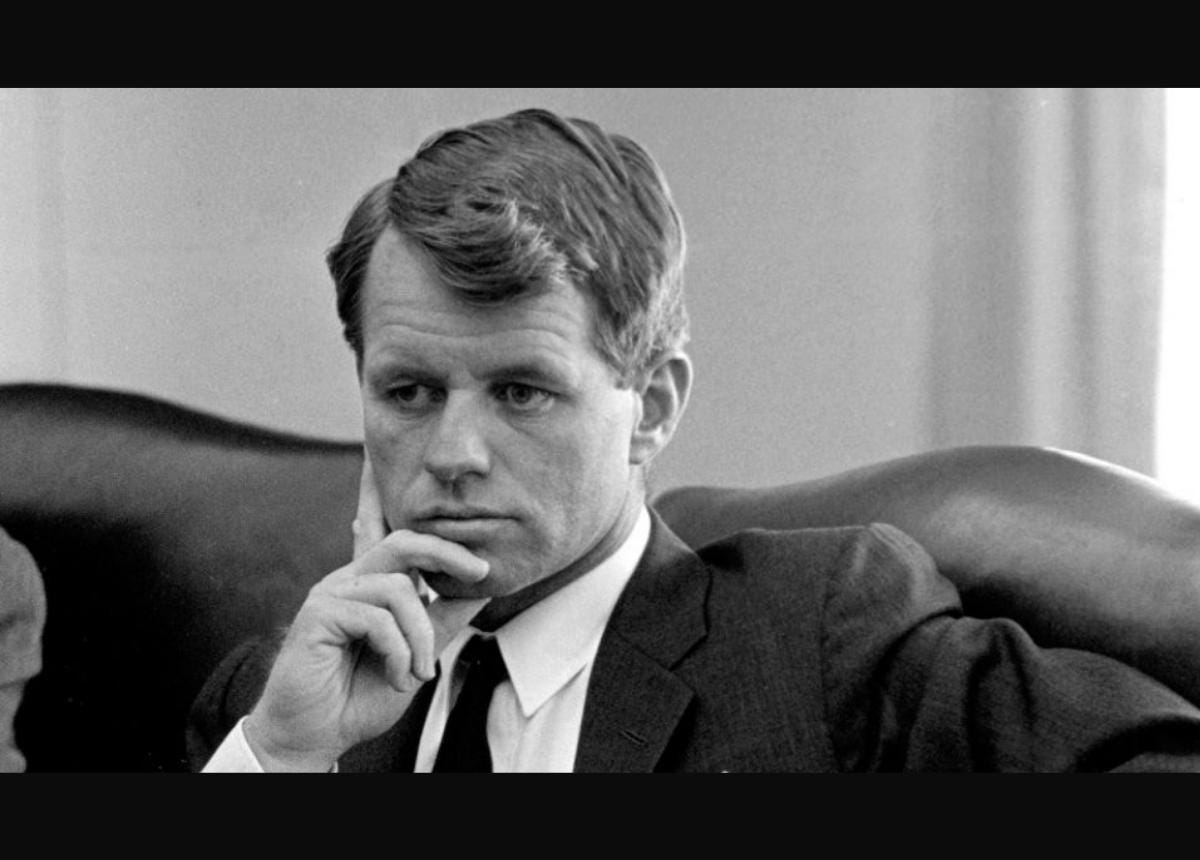
The Coffee Klatch with Robert Reich
News:Politics

Personal history: When I worked for Bobby Kennedy
 2022-06-03
2022-06-03
I was an intern in Bobby Kennedy’s Senate office during the summer of 1967. The civil rights movement was still gaining ground, and Kennedy was crusading for economic and political justice.
My job that summer had nothing to do civil rights or justice, though. And it required only half a brain. I was in charge of Kennedy’s signature machine. The machine’s pen mechanically scrawled “Robert F. Kennedy” on thousands of photographs and constituent letters each day. I had to make sure the photos and letters were lined up properly so the “Robert F. Kennedy” signature would appear at the right place.
Halfway through the summer I was deathly bored — so bored that I started composing mock letters to friends (“Congratulations, Mr. Dworkin, on possessing the largest nose in the entire Hudson Valley. Yours sincerely, Robert F. Kennedy”).
One day, though, I was standing in front of an elevator in the Senate office building when it opened to reveal the man himself. Bobby Kennedy stepped out — surrounded by supercharged aides, all of whom were talking to him simultaneously. As Kennedy moved into the corridor, he saw me and took half a step in my direction. “How are ya, Bob? How’s the summer going?” he asked, and gave me a toothy grin.
Before I had a chance to respond, he was whisked away. No matter. That he actually knew my name was more than enough to keep me going through the rest of the summer — and for years to come.
It doesn’t take much to inspire; sometimes a smile and a hello, and remembering someone’s name will do. It didn’t take much to inspire a twenty-one-year-old in 1967, even if that twenty-one-year-old was spending his time running a signature machine. It was an era when America was moving forward. It didn’t require much to instill values that stayed with that twenty-one-year-old for the rest of his life; interning for Bobby Kennedy was enough.
Here’s one of my favorite quotes from Bobby Kennedy:
“Too much and too long, we seem to have surrendered community excellence and community values in the mere accumulation of material things. Our gross national product ... if we should judge the United States of America by that - counts air pollution and cigarette advertising, and ambulances to clear our highways of carnage. It counts special locks for our doors and the jails for those who break them. It counts the destruction of our redwoods and the loss of our natural wonder in chaotic sprawl. It counts napalm and the cost of a nuclear warhead, and armored cars for police who fight riots in our streets. It counts Whitman's rifle and Speck's knife, and the television programs which glorify violence in order to sell toys to our children.Yet the gross national product does not allow for the health of our children, the quality of their education, or the joy of their play. It does not include the beauty of our poetry or the strength of our marriages; the intelligence of our public debate or the integrity of our public officials. It measures neither our wit nor our courage; neither our wisdom nor our learning; neither our compassion nor our devotion to our country; it measures everything, in short, except that which makes life worthwhile. And it tells us everything about America except why we are proud that we are Americans.”
Sometimes I wonder where America would be today had Bobby Kennedy not been murdered the following June — the evening after winning California’s Democratic primary. I believe he would have been nominated for president that summer and elected president the following November, instead of Richard Nixon. Had that happened, I tell myself, America would be in a far better place now. But am I fooling myself? And what purpose is to be served with an “if only” memory, anyway?
This is a public episode. If you’d like to discuss this with other subscribers or get access to bonus episodes, visit robertreich.substack.com/subscribe
More Episodes
Create your
podcast in
minutes
- Full-featured podcast site
- Unlimited storage and bandwidth
- Comprehensive podcast stats
- Distribute to Apple Podcasts, Spotify, and more
- Make money with your podcast
It is Free
- Privacy Policy
- Cookie Policy
- Terms of Use
- Consent Preferences
- Copyright © 2015-2024 Podbean.com





